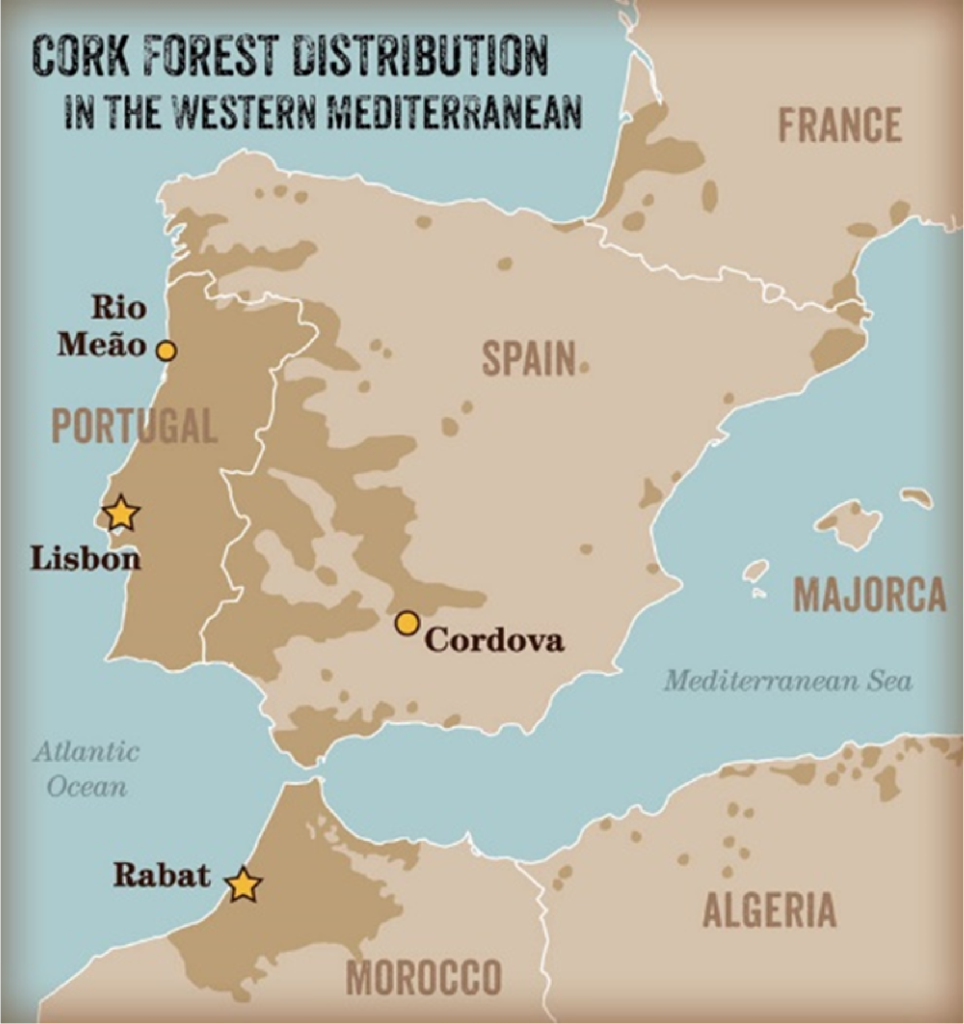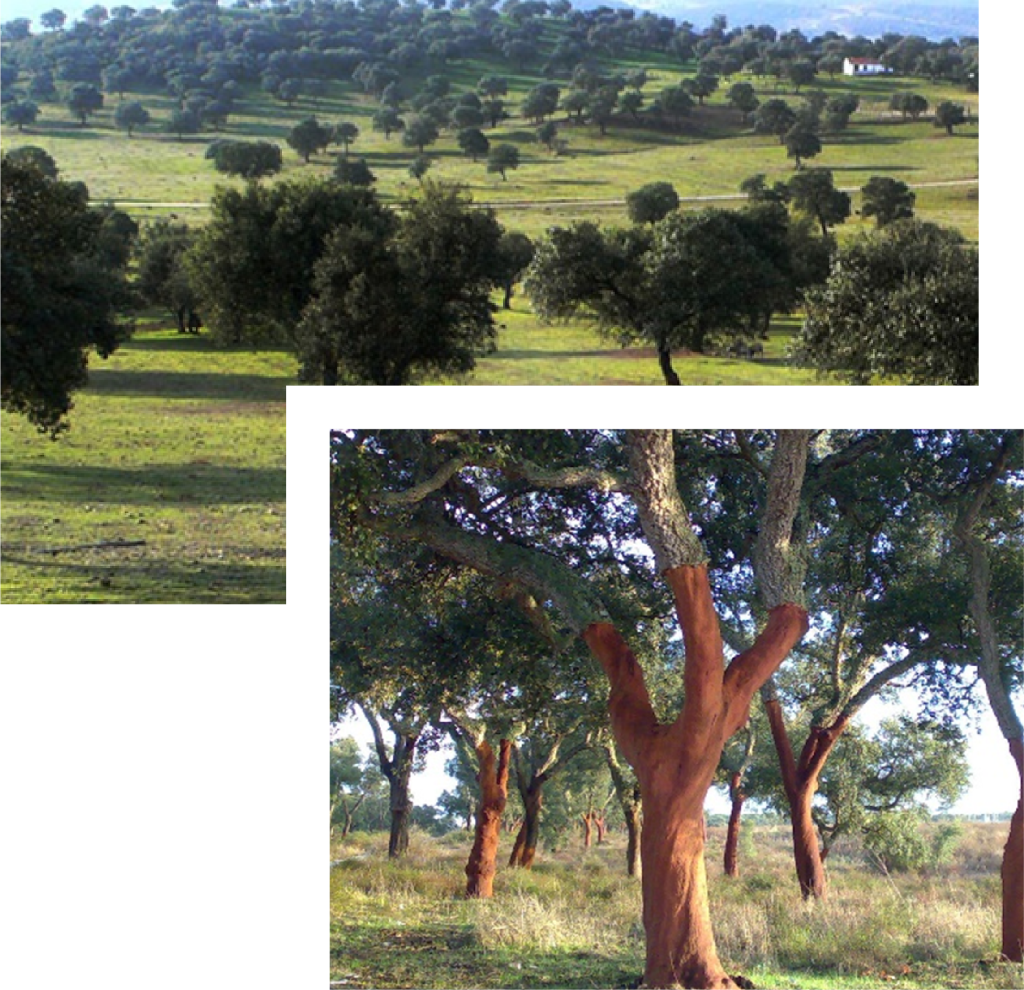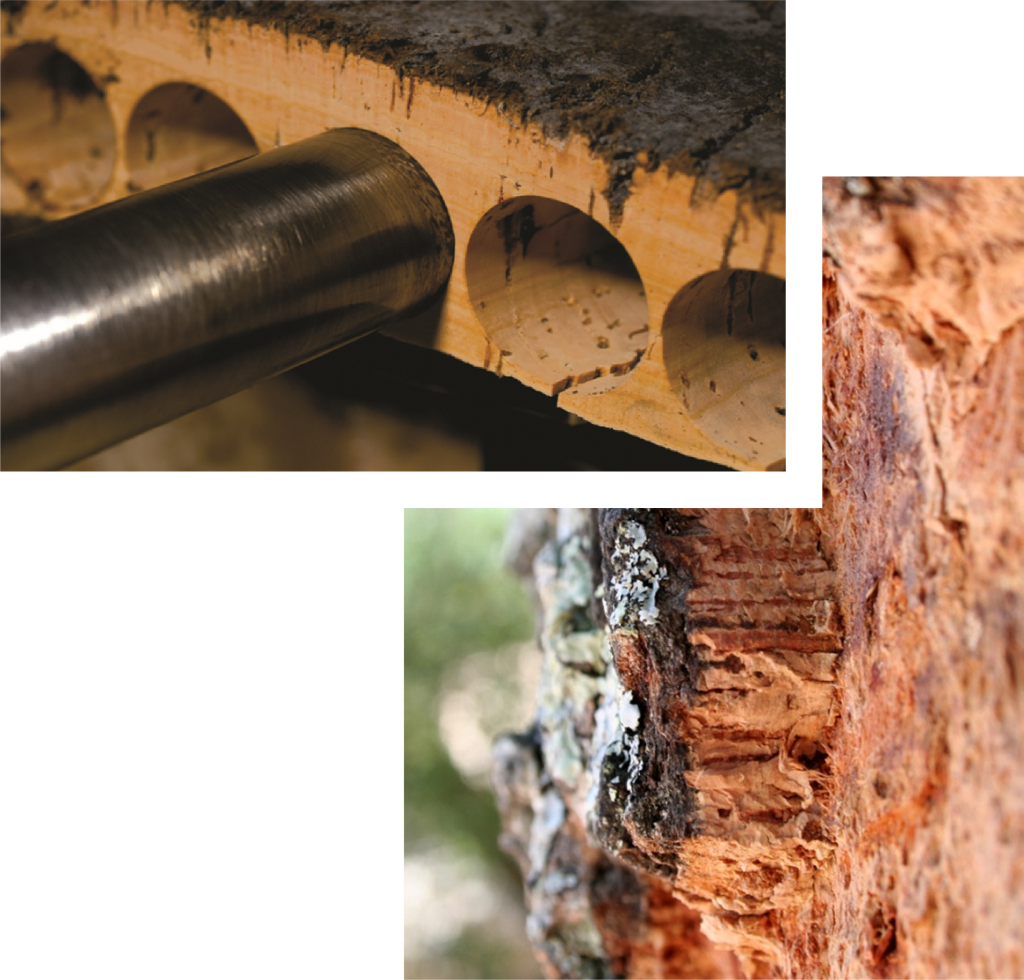
Cork Oak Forests

Cork is a tremendous material, and in our humble opinion, it is one of the most amazing materials to exist, naturally, in nature. ‘Cork’ as it is known, is the outer layer of the cork oak tree, Quercus Suber L. The cork oak tree is native to the Western Mediterranean Basin, where it finds these ideal growing conditions:
- Sandy, chalk-free soils, with low nitrogen and phosphorus, high
potassium levels and ph of 4.8 to 7.0 - Rainfall 400-800 mm (16–32ins) a year
- Temperature between -5o C and 40o C
- Altitude 100–300 meter (330–990 ft)
In total, there are over 2.2 million hectares of cork forests (called Montados in Portuguese), with an annual global production around 340,000 tons a year, which are spread across Portugal, Morocco, Spain, France, Italy, Algeria and Tunisia. In Portugal, where we source the majority of our material, they have 1/3 of all the cork forests in the world, with roughly 23% of their forested land being covered with cork forests, while this accounts for over half of global cork production. In Portugal, the cork supplies are expanding at roughly 10,000 hectares a year, largely in part to a reforestation program supported in part by the Portuguese Government and the European Union. With these programs in place, coupled with the socio-economic value cork provides Portugal, all signs indicate for a continual increase of available material over time – increasing the sustainability of a sustainable resource.


Cork forests not only contribute to a mixed agrarian economy that has sustained farmers for many centuries, but they also support a unique and fragile ecology that provides a habitat for endangered species. The cork oak helps protect the soil from desertification and is well suited to the hot, arid conditions of southern Portugal. It is far less susceptible to the wildfires that ravage eucalypt and pine forests in the north of the country from time to time.
Cork is a multi-functional and multi-purpose material. Besides its ecological value, every part of the tree serves some useful economic purpose. More than 50% of the cork bark goes into the production of different types of stoppers/enclosures for the bottling industry, while other products leverage corks tremendous inherent technical properties relating to sound absorption, thermal insulation, vibrational dampening, lightness and ultimate resilience, in their use in ‘value-ad’ manufacturing and product development.

